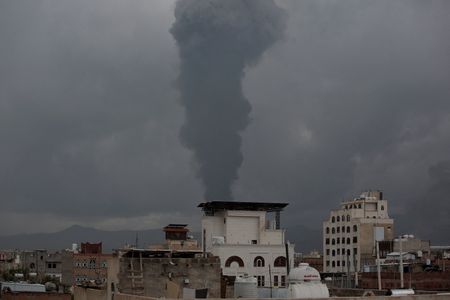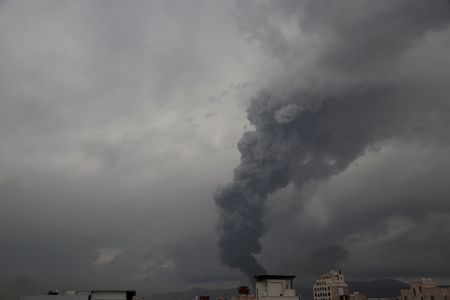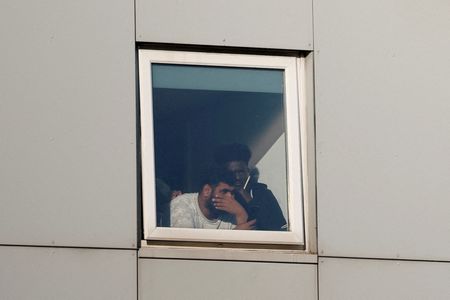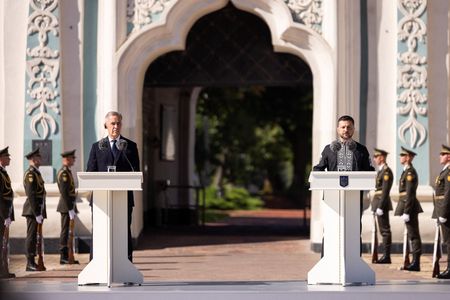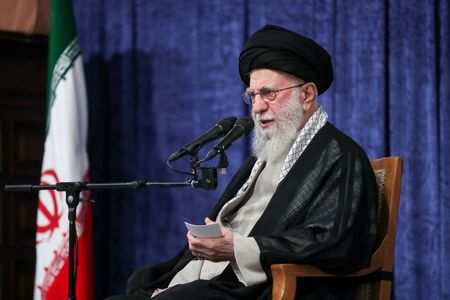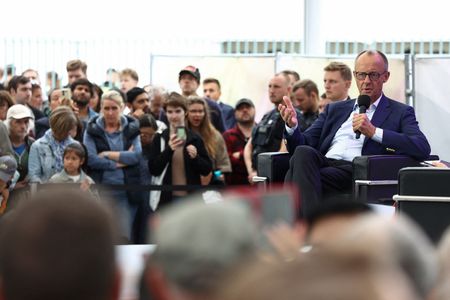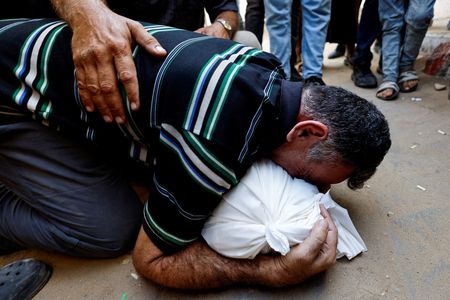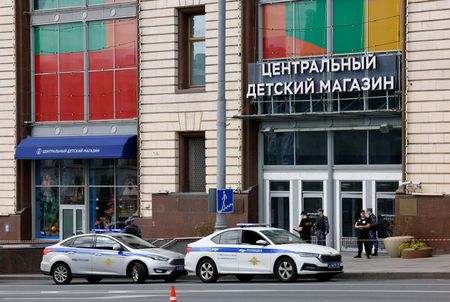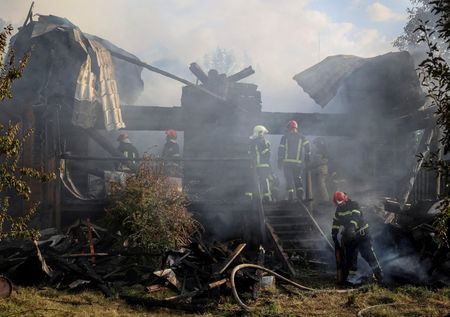(Reuters) -Israeli strikes hit the Yemeni capital Sanaa on Sunday in retaliation for Houthi missiles fired towards Israel, with Houthi media saying the attack killed at least two people and injured five.
The strikes are the latest in over a year of direct attacks and counterstrikes between Israel and Houthi militants in Yemen, part of a spillover from the war in Gaza.
The Israeli military said the targets included a military compound housing the presidential palace, two power plants and a fuel storage site. The Houthi-controlled Saba news agency said the strikes killed at least two people and injured five.
“The strikes were conducted in response to repeated attacks by the Houthi terrorist regime against the State of Israel and its civilians, including the launching of surface-to-surface missiles and UAVs toward Israeli territory in recent days,” the military said in statement.
On Friday, the Houthis said they had fired a ballistic missile towards Israel in their latest attack, which they said was in support of Palestinians in Gaza. An Israeli Air Force official said on Sunday the missile most likely carried several sub-munitions “intended to be detonated upon impact.”
“This is the first time that this kind of missile has been launched from Yemen,” the official said.
Since Israel’s war in Gaza against the Palestinian militant group Hamas began in October 2023, the Iran-aligned Houthis have attacked vessels in the Red Sea in what they describe as acts of solidarity with the Palestinians.
They have also frequently fired missiles towards Israel, most of which have been intercepted. Israel has responded with strikes on Houthi-controlled areas of Yemen, including the vital Hodeidah port.
Abdul Qader al-Murtada, a senior Houthi official, said on Sunday the Houthis, who control much of Yemen’s population, would continue to act in solidarity with Palestinians in Gaza.
“(Israel) must know that we will not abandon our brothers in Gaza, whatever the sacrifices,” he said on X.
(Reporting by Mohammed Ghobari, Jaidaa Taha and Maayan Lubell, Writing by Muhammad Al Gebaly and Hatem Maher, Editing by Jan Harvey and Ros Russell)

